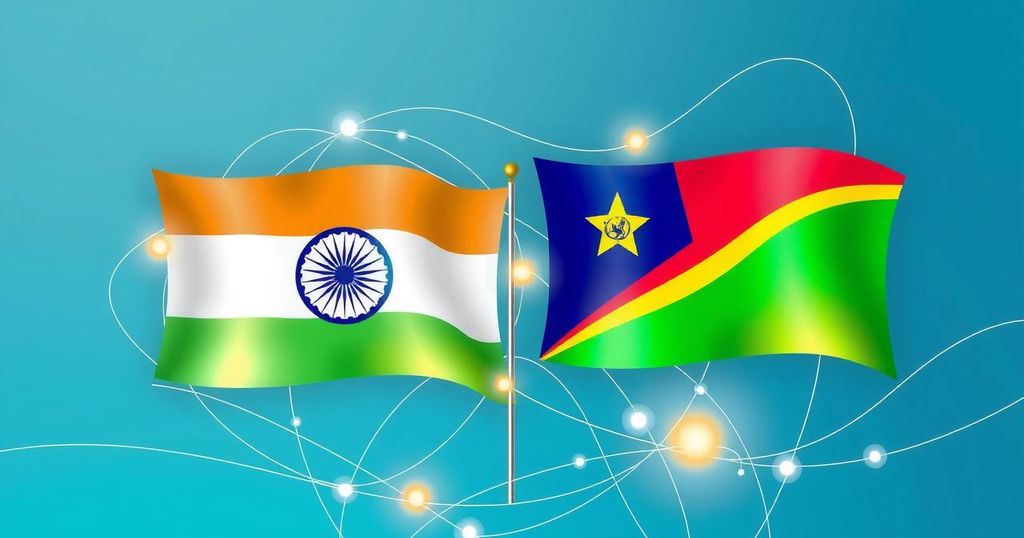India and Mauritius Collaborate on AI and Digital Infrastructure for Development
India and Mauritius have signed an agreement to utilize artificial intelligence (AI) and Digital Public Infrastructure (DPI) for development. The new initiative, termed MAHASAGAR, aims to enhance mutual growth and security. Prime Minister Narendra Modi emphasized the need for enhanced collaboration in areas like healthcare, education, and technology, aiming for sustainable progress between the nations.
India and Mauritius have entered into a collaborative agreement aimed at leveraging artificial intelligence (AI) and Digital Public Infrastructure (DPI) for the advancement of human development. This partnership includes the launch of the “Mutual and Holistic Advancement for Security and Growth Across Regions” initiative, which focuses on enhancing trade, capacity-building, and ensuring collective security for a shared future.
Indian Prime Minister Narendra Modi articulated the commitment to elevating their collaboration by stating, “On the special occasion of Mauritius’ National Day, I had the opportunity to meet my good friend, PM Navinchandra Ramgoolam… We have decided to raise our partnership to an Enhanced Strategic Partnership.” He outlined plans to enhance cooperation in infrastructure, digital technology, health, and AI.
Last year, India initiated efforts to incorporate AI into its digital public infrastructure to enhance operational efficiency. This infrastructure includes significant platforms such as the Unified Payments Interface (UPI) and the Aadhaar system, which is the world’s largest biometric identification network. Modi remarked, “The seamless fusion of Digital Public Infrastructure (DPI) with artificial intelligence propels us into a new world of ‘Digital Public Intelligence.’”
The Prime Ministers emphasized that strong people-to-people connections underlie their partnership and paved the way for cooperation in various sectors, including digital health, education, and mobility. Modi acknowledged, “Cooperation shall be extended in areas like Digital Health, AYUSH Centre, school education, skilling and mobility.”
Modi highlighted the nations’ established collaboration on developmental issues, pointing out their history of cooperation in security, education, and healthcare. He mentioned that Mauritius is a key partner in the broader context of the Global South and affirmed their commitment to the “Vision SAGAR” and its evolution into the “MAHASAGAR” initiative.
India aims to expand its economic partnerships globally, with ongoing collaborations in AI and technology with countries like the United Kingdom, the European Union, and efforts towards securing a trade deal with the United States. These initiatives are designed to bolster domestic manufacturing and create jobs.
The leaders from India and Mauritius reiterated their commitment to enhancing health and educational infrastructure through mutual assistance in adopting innovative healthcare technologies. Plans were solidified for India to support the implementation of the Digital Health Office in Mauritius and to dispatch specialists to facilitate the digitization of local healthcare services.
Their joint vision emphasizes a continued partnership in health, education, and cybersecurity, with targets including the training of 500 Mauritian civil servants in India over the next five years, and a framework for conducting trade in local currencies as part of their collaboration.
The agreement between India and Mauritius highlights the strategic collaboration between the two nations, particularly in leveraging AI and digital infrastructure for development. The formation of the MAHASAGAR initiative underscores their commitment to enhancing mutual security and fostering growth through technology and capacity-building. The collaboration in health and education further exemplifies the focus on sustainable development and quality service delivery.
Original Source: coingeek.com




Post Comment